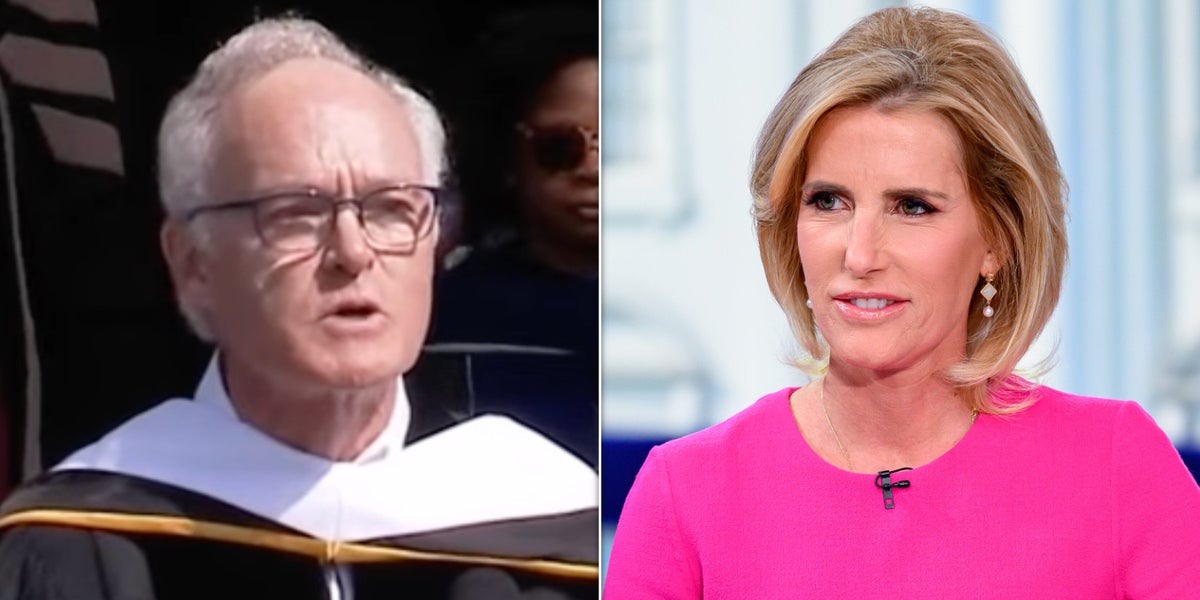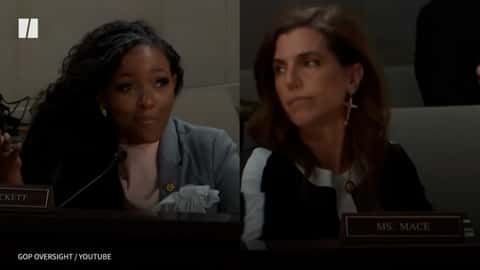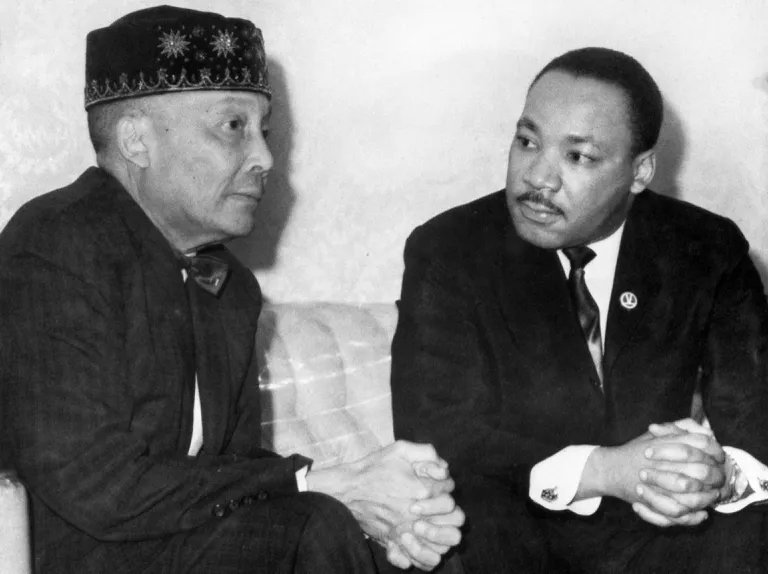Laura Ingraham Levels Racial Trope at Jasmine Crockett – A Discussion on Racial Stereotypes and Media Representation

Recently, Fox News host Laura Ingraham faced significant backlash for her remarks aimed at Congresswoman Jasmine Crockett during a segment of “The Ingraham Angle.” Ingraham, accompanied by contributor Raymond Arroyo, made derogatory comments regarding Crockett’s speaking style, labeling her as “street” and utilizing coded racial language that many consider offensive.
This commentary notably targeted Crockett’s critique of Attorney General Pam Bondi, echoing stereotypes historically associated with Black individuals. Arroyo even drew a comparison between Crockett and Tyler Perry’s Madea character, reinforcing negative connotations linked to Black culture. Ingraham’s remarks only exacerbated these implications, implying that Crockett’s style resembled a “TikTok challenge.”

Experts analyzing this incident suggest that it reflects a broader trend within media narratives, particularly among conservative platforms, where racially charged language is used to diminish Black voices in political discourse. Terms like “ghetto” or “street” are habitually invoked in pejorative contexts, signaling underlying racial biases that persist in societal attitudes. The disparagement Crockett experienced echoes a historical pattern wherein Black figures in influential positions face scrutiny or belittlement based on their cultural expressions or speech.
The Impact of Racial Stereotypes in Media

A growing chorus of critics on social media vocally condemned Ingraham and Arroyo’s commentary, emphasizing the overt racial undertones permeating their remarks. Observers, including political scientists and commentators, argue that this framing of Crockett’s speech as “lesser” is rooted in deeper biases against Black individuals, thereby perpetuating negative stereotypes and a culture of denigration. Such commentary serves not only to undermine Crockett personally but also reflects larger societal issues that affect how Black politicians are perceived.
Crockett herself responded eloquently to the criticism, asserting that her manner of speaking is an authentic expression of her experiences, not merely a performative act influenced by her educational background. She pointed out that the fixation on her speech serves to distract from substantive critiques of her political positions, suggesting that her critics are possibly threatened by her presence as a Black woman in a position of authority.
Media Narratives and Racial Divides
The incident between Ingraham and Crockett serves as a crucial reminder of how media narratives significantly shape public perception, particularly when invoking racial stereotypes. Experts caution that such dialogues perpetuate a toxic environment that not only weakens civil discourse but also amplifies racial divides. The use of racial tropes to undermine the legitimacy of Black representatives in the political landscape is a pattern that continues to emerge, illustrating profound societal challenges.
Moreover, the conversation surrounding Crockett’s speech highlights the essential need for awareness and sensitivity within media representations involving race. As seen in this incident, the careless invocation of racial stereotypes can have far-reaching implications, not merely influencing individual careers, but also contributing to broader societal attitudes regarding race and authority.
Conclusion

As we reflect on the exchange between Laura Ingraham and Jasmine Crockett, it becomes increasingly clear that racial tropes remain deeply entrenched in political conversations. The backlash against Ingraham’s comments sparks a necessary dialogue about race, representation, and accountability in media narratives. By fostering an understanding of these issues, we can work towards a more equitable discourse that honors diverse voices and experiences in politics.